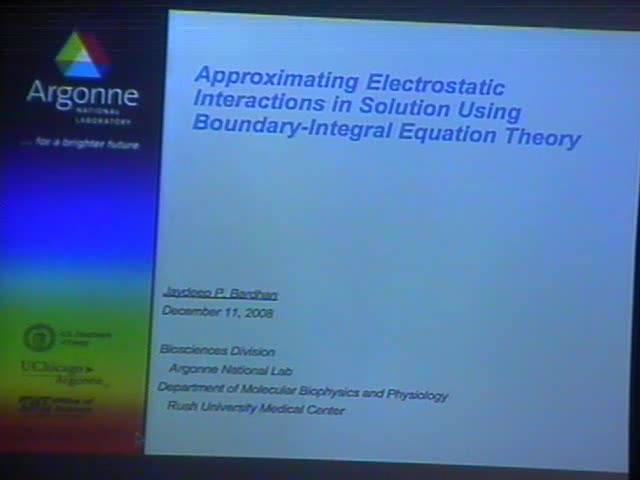Estimating electrostatic contributions to solvation via boundary-integral equation theory
Presenter
December 11, 2008
Keywords:
- Molecular
MSC:
- 92E10
Abstract
Implicit-solvent models commonly decompose the molecular solvation free energy into a sum of electrostatic and non-polar terms, with separate theoretical and numerical procedures employed for each component. In this talk I will describe a new method for estimating the electrostatic free energy of solvation, called BIBEE (boundary-integral-based electrostatics estimation). The BIBEE method rapidly approximates the solution of the apparent-surface-charge (ASC) or polarizable-continuum-model (PCM) integral equation formulation of the mixed-dielectric continuum electrostatics problem that is often solved using finite-element or finite-difference methods. The method draws inspiration from the surface-generalized Born model, but avoids the unphysical interpolations inherent to generalized-Born method. As a result, BIBEE methods more accurately reproduce solvent-screened interactions between charges. Furthermore, it is straightforward to show that variants of the BIBEE method can generate rigorous upper and lower bounds for the actual electrostatic free energy of solvation.
